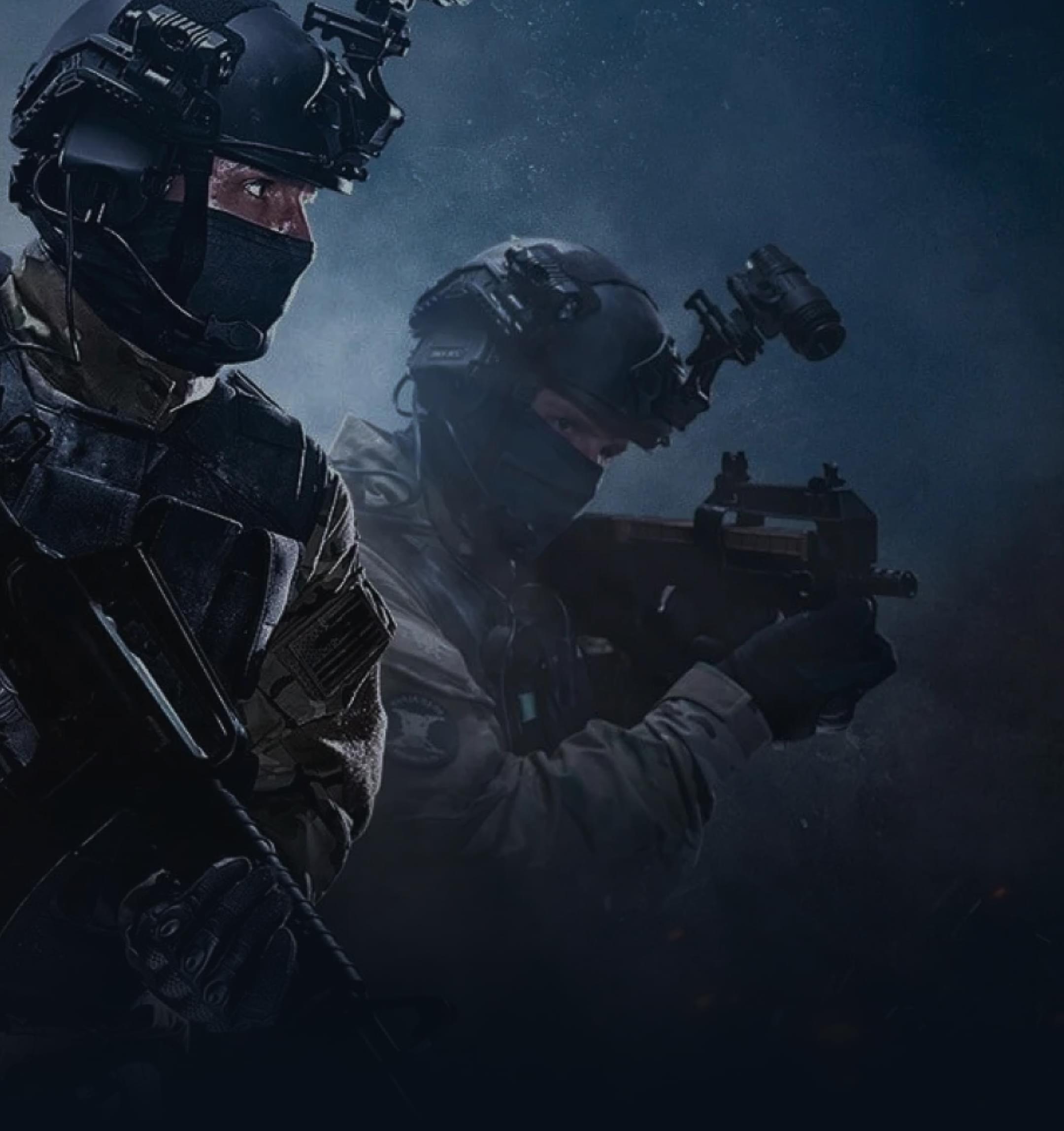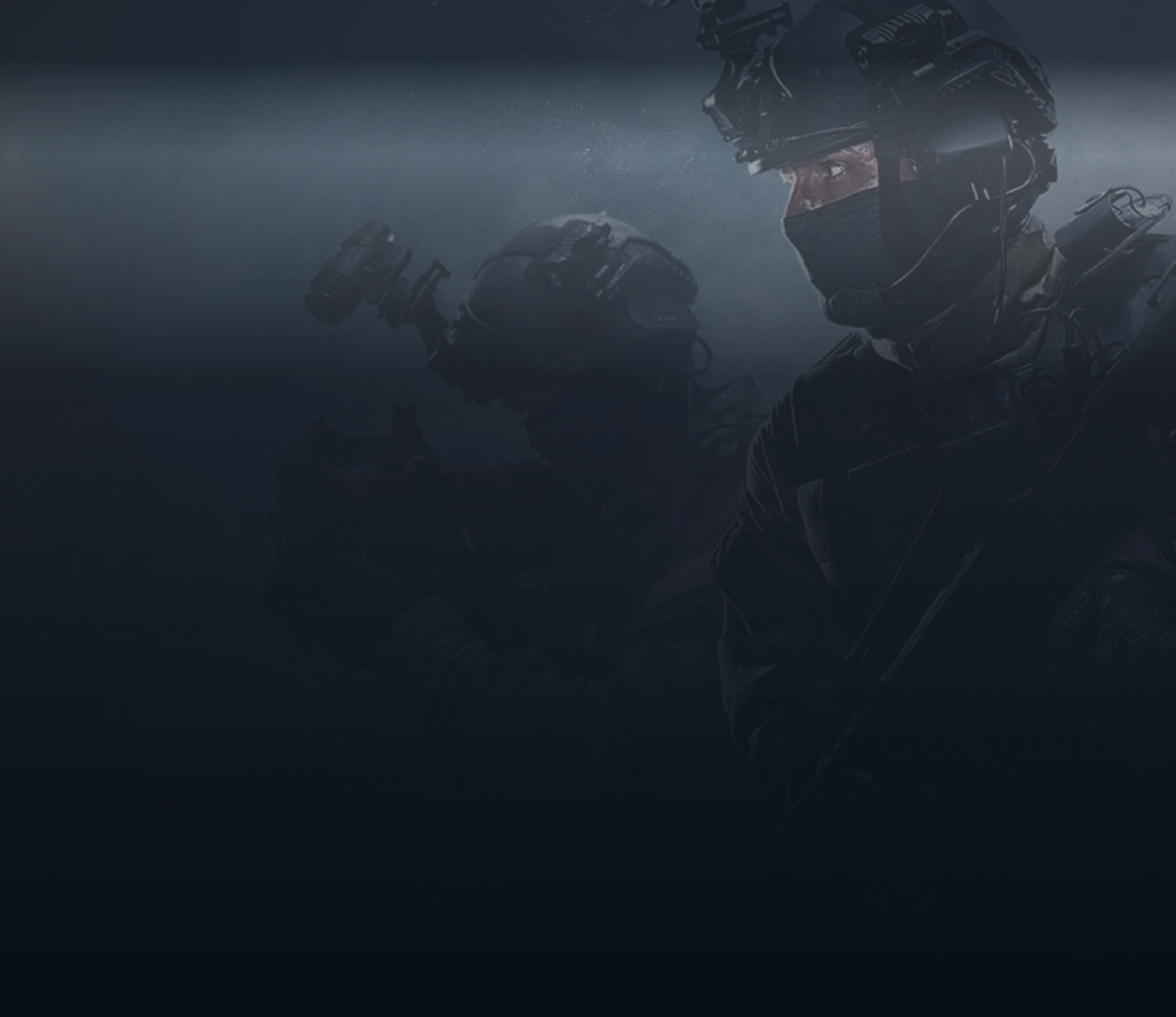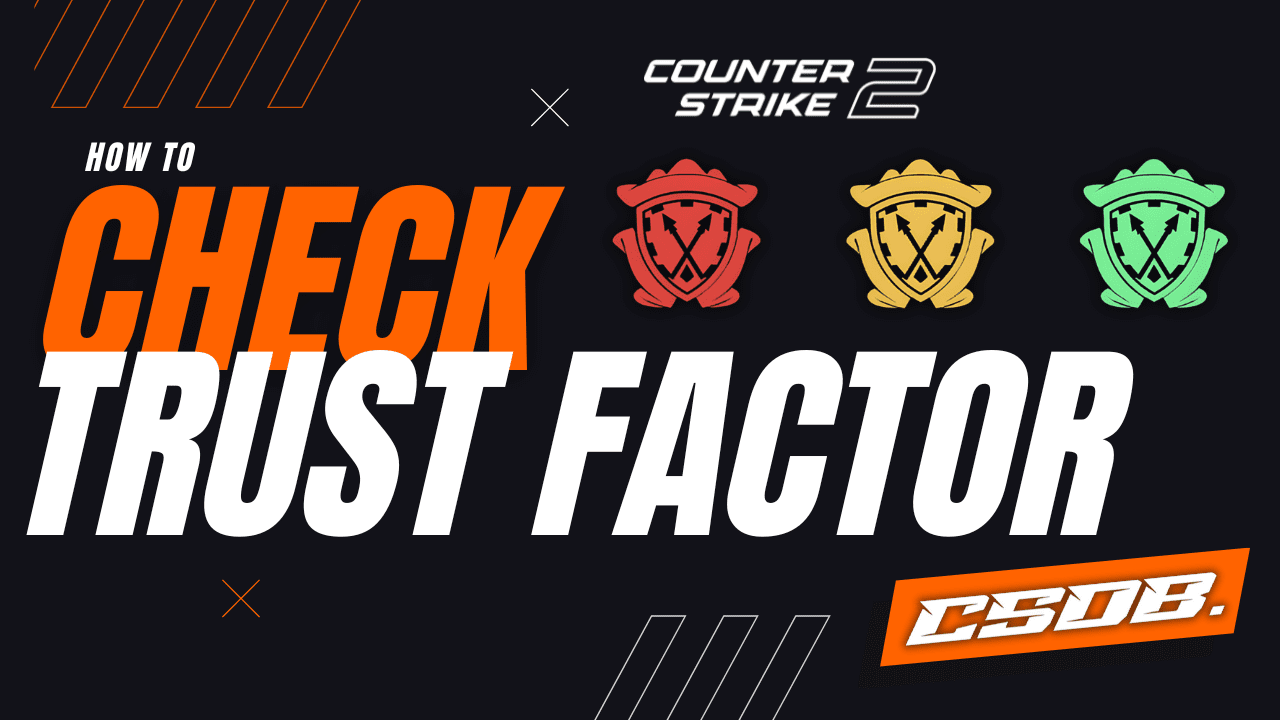Since it was introduced in 2017, the Trust Factor has transformed matchmaking in CS:GO and now CS2, making it more efficient and improving the overall gaming experience.
With a high Trust Factor, you’ll be matched with other players who also have high scores, allowing you to enjoy a smoother gameplay experience with respectful and skilled players. If your Trust Factor is low, though, expect longer queue times and more toxic players, hackers, griefers, and spammers.
While Valve hasn’t provided an official way to check your Trust Factor or listed the factors they use, here are three unofficial but effective ways to see your Trust Factor in CS:GO, which we have listed on this page.
Let’s begin by looking at the factors that influence the Trust Factor, so we can better understand its purpose and how these elements can help us figure out what your Trust Factor is.
Verdict: Is There an Official Way to Check the Trust Factor in CS:GO?
No, unfortunately there’s not an official way to check your trust factor in CS:GO or CS2, as Valve has refused to reveal the exact factors they use to determine it, as well as releasing a tool or solution to verify the quality of your Trust Factor for matchmaking.
But there’s always a workaround for everything, especially in video games and esports. After looking into the statements and information developers have shared since Trust Factor was introduced in 2017, here’s a list of the factors that affect Trust Factor and how we can see it:
- Behavior in CS:GO/CS2
- Behavior in Steam and other games
- Number and frequency of cheat reports
- Amount of time spent playing CS:GO/CS2
Valve has refused to reveal the full list, because they want players to honestly behave correctly, to make the CS:GO community healthy and respectful for everyone and promote competitive integrity.
Now that you have an overview on the factors used by Valve to determine your Trust Factor, let’s check the unofficial way of seeing it, along with strategies on how to increase it.
The Unofficial Way to See Trust Factor in CS:GO
Just like we mentioned before, there’s always a workaround for everything, especially in the digital realm. So, here’s how you can see if your Trust Factor is too low:
- Tell 2 or more friends to help you see your Trust Factor
- Get all together in the queue for MM in CS:GO
- Text your friends and ask them if they got a warning or message when joining the lobby
- If they receive a warning, it’s an indicator that your Trust Factor is low
- We encourage you to repeat this exercise 2-3 times more (if possible with different friends) and compare results
Although it’s not an official method by Valve, it’s a quick way to diagnose your Trust Factor, and see if it’s in good standing or if you need to work on improving it.
Because it’s not an official method, and hence it can be unreliable at times, we encourage you to try this along with the other two methods we are going to describe below. Because when you use the three together, they can bring a better overview on what’s happening with your Trust Factor, and how you can improve it to enjoy a better MM experience.
Analyze the Queue Time and the Quality of Players
Another way to determine if your Trust Factor is low is by analyzing the queue time and the quality of players you get matched with. Here you have the points to watch out for:
- The queue time takes over 10+ minutes
- You need to restart the game several times to be able to join a game
- You get matched with toxic players, or even worse, cheaters and hackers
- You notice the long queue time and the bad quality of players is a constant
If you feel identified with the pointers we have just described, it’s almost guaranteed to say that your Trust Factor is extremely low, and hence you need to work on improving it, otherwise your MM experience is going to be horrible all the time.
Be Honest With Yourself
Another effective way for seeing your Trust Factor is just being honest with yourself. Answer the following questions, and based on your answers, we will be able to get a proper idea about the quality of your Trust Factor in CS:GO:
- Do you constantly fire at your teammates deliberately?
- Do you constantly go AFK?
- Do you deliberately block the way for your teammates?
- Do you insult other players in CS:GO via the chat or on the mic?
- Do you spam messages via the chat or on the mic?
- Do you play music through your mic in MM servers?
- Have you ever used a cheat in CS:GO/CS2?
- Are you constantly votekicked from matches?
- Do you insult other players or spam in other Steam games?
- Have you been reported for cheats in other Steam games?
- Have you been banned from other Steam games?
- Have you insulted or spammed other players in Steam communities/groups?
If you have answered NO to the majority of these questions, chances are your Trust Factor is alright. However, if you have answered YES to 2 or more questions, especially the ones regarding cheats and toxic behavior, it’s highly probable your Trust Factor is very low, and hence you’re having problems with Matchmaking.
We recommend trying all three unofficial methods to find out if your Trust Factor is good or if it’s too low and needs improvement. In case you need to increase it, you can find effective strategies to accomplish it in the next section.
How to Increase Trust Factor CS:GO and CS2
If you’re here then it’s because you’re tired of long queue time and getting matched with horrible players, and hence you recognize you need to increase your Trust Factor. Below, you can find the most effective strategies, so you can improve this critical and the quality of your MM experience.
Behave like a Decent and Respectful Player
This is a no brainer. If you want to improve your Trust Factor, you need to behave like a decent and respectful player, no matter what. It means not playing annoying music through your mic, refrain from insulting other players and only using the mic and chat to coordinate actions with your teammates.
Since you have a low Trust Factor, and you’re getting matched with hackers and toxic players, even then, you need to display good behavior. It’s going to be pretty challenging, but it’s what you need to do if you want to get out of the abyss of poor Trust Factor.
Stop Throwing Matches
Just like you need to treat everyone respectfully (or simply ignoring them and focus on doing your thing), you also need to stop “throwing” matches, which includes the following:
- Going AFK multiple times for no reason other than annoying the rest of players
- Deliberately hurting or killing your teammates
- Constantly flashing your own team
- Body blocking important areas in the map
- Randomly vote kicking your own teammates for no reason
- Revealing position to enemies
- Etc.
Basically, don’t deliberately do things that would cause your own team to lose. Because if you constantly throw or grief CS:GO matches, you will get reported, and this will massively decrease your Trust Factor.
Say NO to Cheats and Hacks
Evidently, you should never run cheats or hacks, as it’s going to get you reported or game banned, or even worse, VAC banned, and there’s no way to fix the latter. Once you get VAC banned, you can kiss the MM servers goodbye, making it meaningless to try to improve your Trust Factor.
If you have tried a couple of hacks here and there, be honest with yourself and stop right off the bat. Valve has become a lot smarter at detecting cheaters and hackers, so it’s a matter of time before they catch you and irreversibly hurt your Trust Factor.
Display the Same Good Behavior in Other Steam Games
Be respectful to other users and players on Steam and other Steam games. Be polite, support your team, don’t engage in griefing or throwing matches, don’t run hacks or cheats and that’s it – your account will be in good standing, and hence, Valve will take this into account for improving the current state of your Trust Factor.
Work On Your Steam Account
Since Valve uses your behavior on Steam as a data point for determining your Trust Factor, it’s a good idea to work on your Steam account to increase your Trust Factor, and hence, boost your MM experience.
The best thing you can do here is to level up your Steam account, along with crafting badges from trading cards, which you can obtain by playing other Steam games. And just like you need to grind hard in CS:GO to unlock important achievements, you will also have to spend time and energy into leveling up your Steam account.
If you want to speedrun through this process, you can use a service such as SteamLevels.com to level up your Steam account easily and fast, with no effort from your end. If you’d like to learn more about it, you can check our review here: https://csdb.gg/steamlevels/review/
Make Your Steam Profile Public
Another way you can improve your Trust Factor is by making your Steam profile public, allowing the rest of users to check your inventory, achievements, badges, groups, games, and more. This lets Valve see you as a trustworthy user, because you’re open to sharing information about your account and activity with the rest of the community.
Make Your Inventory Public and Valuable
If you have an inventory full of rare CS:GO skins, it makes your Steam account more valuable and interesting. Valve considers this when setting your Trust Factor, as it shows you’re really engaged with the game, which also attracts other players’ interest. All of this helps position your account as trustworthy, likely boosting your Trust Factor.
If you’re not sure how to buy or trade CS:GO skins, check out our guide: https://csdb.gg/best-places-to-buy-cs2-csgo-skins/. This will help you get your first CS:GO skins and add them to your inventory, supporting your goal of improving your Trust Factor.
You don’t have to spend several thousands of dollars. Just adding a handful of skins worth $100-$200 in total is going to add plenty of value to your inventory, and hence, it might help you to improve your Trust Factor.
Do I Have a Low Trust Factor If I’m a New Player?
No, you won’t get a low Trust Factor just for being a new player. As long as you play respectfully and do not engage in toxic behavior, cheating or griefing, your Trust Factor will remain in good state and even increase, because the longer you play CS:GO and the more achievements you unlock, the better.
As we have mentioned before, the users with a low Trust Factor are those that engage in activities such as griefing, spamming, insulting, cheating, etc. If you are not doing any of that, then you’re fine and you’re going to get matched with proper players.
For example, if you’re playing CS:GO/CS2 as a new player, but you’ve already played other Steam games and you have shown a positive behavior, then you’ll start off with a high Trust Factor, allowing you to get matched with other respectful players.
The Link Between Prime and Trust Factor in CS:GO and CS2
While Valve has not officially admitted that Prime influences the Trust Factor, we can unofficially say that yes, it’s an important factor since it allows you to only get matched with other Prime users, reducing your chances of encountering hackers, griefers, toxic players, spammers, etc.
Therefore, another effective way to improve your Trust Factor is by purchasing the Prime subscription, which requires a one-time payment of $14.99. Once you purchase it, you will automatically be matched only with other Prime players, which will reduce the queue time and improve the quality of players you find in the MM servers.
Final Words
Now you know how to check your Trust Factor in CS:GO. Although the three methods we’ve shared are unofficial, they’ve worked for thousands of players. Combined with our strategies for improving your Trust Factor, you have everything you need to enhance your gameplay experience in CS:GO and CS2, so you can enjoy shorter queue time and get matched with better players.


